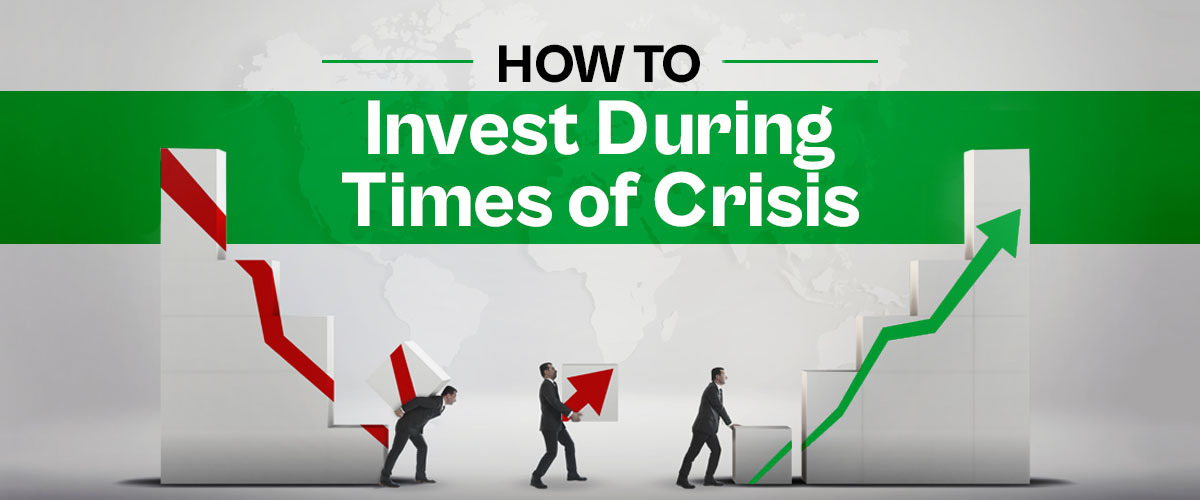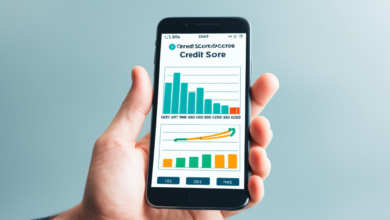A Simple Guide to Choosing the Best Investment During a Crisis
Throughout human history, we have faced various crises. Some of these crises have been financial, such as the banking and currency crises, while others have been economic, such as the debt crises and sub-prime crises. But, perhaps the ones we remember most clearly are social crises such as food shortages and high unemployment, as well as political and international crises such as the current Ukraine-Russia conflict. While global markets have mostly weathered the initial shock of the Ukraine-Russia crisis, there are lessons to be learned from the recent conflict.
In this blog, we will discuss how you should plan your investments in times of crisis so that the situation can be better. will ensure that you Don’t panic or make emotionally charged investment decisions that you will regret later. We will tell you all these things but let us first take a closer look at how most investors react to a crisis.
How do most investors react to the crisis?
Regardless of the type of crisis, there is always significant noise about the latest developments, and that noise inevitably affects investors. The typical reaction of investors to a crisis is to panic and start selling their equity investments even if they incur a loss. This panic selling decision is often the wrong one yet it happens every time due to excessive fear of further losses.
But even if you don’t panic during a crisis, it can prove difficult to find suitable investments during such periods. Some of the problems you need to look out for while investing during a crisis are high volatility in the equity markets and the possibility of a double recession.
The current crisis in Ukraine is currently following the same pattern. After the initial fall in the Indian stock markets, the overall market has improved significantly, yet there is certainly a lot of uncertainty about the future prospects of investments during the current crisis. To get a better idea of how the current crisis might pan out, let’s look at the impact of war on equity investments.
What is the effect of war on equity market?
Most asset classes, sectors and industries are adversely affected by the war. This is because war also leads to trade disruptions, sanctions, high inflation and tariffs and shortages of raw materials. Together these factors can result in a significant drop in equity share prices of several companies by 10-30%.
For example, during the current Ukraine-Russia conflict, the price of commodities such as wheat, cooking oil, nickel, natural gas and petroleum increased significantly. This is because both Russia and Ukraine export these items globally, and the current conflict has caused significant supply disruptions.
Due to this sudden increase in the prices of commodities globally, economies across the world including India will be affected in the short and medium to long term. But apart from commodity shortages and high cost of living, there is another reason for equities to recover in times of crisis. This is linked to investor sentiment and fears that equity markets will improve further.
Nevertheless, historical data on the long-term performance of equity markets after the crisis has shown a different trend. The table below shows the performance of the US Dow Jones Industrial Average after some of the major post-war crises:
| The performance of the Dow Jones after the post-war crisis (1948-1990) | |||
| market low date | 1 year return after crisis | 2 year returns after the crisis | |
| Berlin blockade | 07/19/1948 | -3.3% | 13.2% |
| Korean War | 07/13/1950 | 28.8% | 39.3% |
| 1962 stock market crash | 06/26/1962 | 32.3% | 55.1% |
| Cuban Missile Crisis | 10/23/1962 | 33.8% | 57.3% |
| Kennedy’s assassination | 11/22/1963 | 25.0% | 33.0% |
| bay of tonkin attack | 08/06/1964 | 7.20% | 3.10% |
| Stock Market Crash 1969-70 | 05/26/1970 | 43.60% | 53.90% |
| Stock Market Crash 1973-74 | 12/06/1970 | 42.20% | 66.50% |
| Oil Crisis 1979-80 | 03/27/1980 | 27.90% | 5.90% |
| stock market crash 1987 | 10/19/1987 | 22.90% | 54.30% |
| gulf war 1990 | 08/23/1990 | 23.6% | 31.30% |
| average market depreciation | 25.80% | 37.50% | |
As you can see, the impact of a war or other crisis on equity markets has historically been short-lived. There has been a marked correction within a year or two of markets hitting record lows. This is because equity markets generally adapt to the new reality within a short period of time, and growth returns shortly.
A similar trend is also present in the case of Indian equities. The table below shows the impact of war and other domestic geopolitical crises in Indian markets:
| Impact of Geopolitical Crisis on Nifty 50 (1999-2020) | |||
| 1 day return | 1 week return | 1 year return | |
| kargil war 8 May 1999 | 2.9% | 9.6% | 24.7% |
| attack on parliament 13 December 2001 | -0.8% | -2.3% | 0.0% |
| Samjhauta Express Blast February 20, 2007 | -1.4% | -3.5% | 19.9% |
| Mumbai attacks November 26, 2008 | 0.1% | -3.5% | 81.9% |
| Surgical strike across LoC September 29, 2016 | 1.0% | -0.2% | 13.9% |
| pulwama attack February 14, 2019 | -0.4% | -1.8% | 12.7% |
| Balakot air strike February 26, 2019 | -0.3% | 2.0% | 7.8% |
| Galwan Valley clash June 15, 2020 | 1.0% | 6.7% | 61.7% |
As you can see, the Indian stock markets have also historically managed to recover quite well within a year of the crisis. So, if you are a long term investor, you should not follow the masses and sell your equity investments when the crisis strikes. Instead of trying to time the market to profit from your investment, just focus on timing the market.
How to choose investments during crisis?
Any crisis, be it economic, geopolitical or socio-economic, provides many opportunities to increase your wealth. In fact, historical data shows that crisis periods often help investors generate additional returns, provided they choose investments wisely. The primary reason for this is certainly the behavior of investors in response to any crisis.
Usually at the start of a crisis, investors typically decide to move their investments into sectors, industries and asset classes that are considered “safe”. These include technology, utilities, consumer staples and gold. While such investments can help in controlling the losses of an equity portfolio to some extent, there is no guarantee that these investments will help build wealth over the long term.
Some smart investors may choose a different option – short selling stock or index futures. A short-seller is able to make money from a fall in share prices or a fall in the index. In simple words, short-sellers borrow shares they don’t already own and sell them with the hope that the shares may be available to buy later at a lower price. However, short-selling transactions are not as simple as buying and redeeming mutual fund units, so this technique of profiting from falling markets is not suitable for all investors.
How to invest during market downturn?
During the downturn in equity markets, you can invest in high quality stocks which are available at cheap valuations. To choose the best high-quality stocks during periods of crisis, you need to consider a few key criteria:
1. Invest in companies that provide essential goods and services
During a crisis, it’s usually a good idea to choose stocks of companies that provide essential goods and services. This is because sectors that deal with essential commodities and products of everyday necessities like soap, milk, medicines, rice etc. Tends to do better during periods of crisis. In the case of other products or services, individuals may have the opportunity to postpone purchases, but this is not the case when it comes to essential or everyday necessities.
Similarly, you should consider avoiding companies that operate in discretionary consumption sectors such as jewelry, automobiles, hospitality and entertainment, travel, etc. In times of crisis, shares of these companies may be available at great discounts, but such businesses usually take longer to recover and flourish after a crisis.
2. Find the companies controlling your supply chain
There is a risk of disruption in the supply chain in times of war. Hence it is natural for many companies to face shortage of raw material which affects the production. In such circumstances, companies operating their own supply chains have a significant advantage.
This is because companies with direct distributors are usually able to normalize their supply chains faster than companies that use wholesalers. Similarly, companies that operate B2C channels on their own like showrooms, diagnostic labs etc. Are in a better position to rebound faster than companies that rely on third parties.
3. Choose Companies That Support Your Stakeholders
Another factor to consider when you’re investing during a crisis is the way the company manages the interests of its stakeholders. If a company is able to provide additional credit or working capital loans to its suppliers, vendors and distributors during the crisis, it is an indication that the company’s financial position is strong.
A strong balance sheet indicates that the company is better positioned to survive the crisis than its financially weaker peers. Furthermore, if the number of market players goes down during the crisis, companies with strong balance sheets can post significant gains in terms of market share by the time the crisis is over.
4. Companies in a Position to Increase Market Share
Typically, periods of crisis almost always lead to a change in market share from unorganized to organized players. In fact, strong companies are strengthened by a crisis, while weak companies become weak and may even cease to exist.
Therefore, you should invest in a company that belongs to a high-demand sector and has the ability to bridge the supply chain gap. Such a company may be able to capture more market share and emerge as a premium brand by increasing ad spend during the crisis period.
Some examples of industries in which such companies may be involved include electronics equipment, supply chain and logistics, textiles, footwear, packaged foods, etc.
Smart way to choose investments during crisis
If you have a well-diversified portfolio and rebalance your investments from time to time, you need not worry about the short-term ups and downs of the equity market. The smart way to build a well-diversified portfolio that is rebalanced in response to market conditions is to become an ET Money Genius member.
The ET Money Genius membership gives you access to 6 customized strategies based on your investment goals and individual investment portfolio in mutual funds or stocks and ETFs. Some of the key benefits of ET Money Genius membership are:
- Multi-asset allocation across different asset classes in line with financial goals
- Risk management of your portfolio in response to changing market conditions
- Monthly one-tap rebalancing of your portfolio
- Consistent returns above the benchmark to reduce volatility and protect the portfolio from downside
ground level
The current Ukraine-Russia conflict is not the first crisis that has happened, and we will certainly see other crises in the future as well. The best way to overcome these woes is to ignore the noise, act rationally and stay invested for the long term. Investors who remain calm during periods of crisis not only increase their wealth over the long term, but also win big when the market rebounds later.







